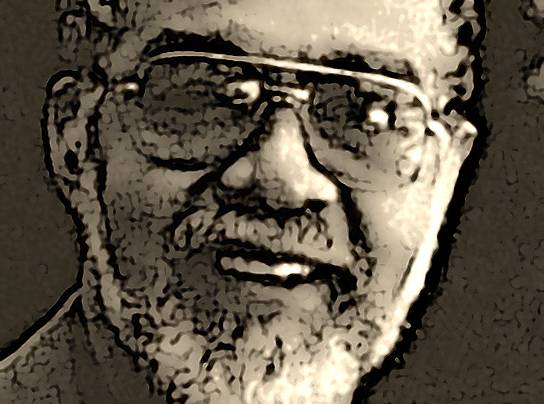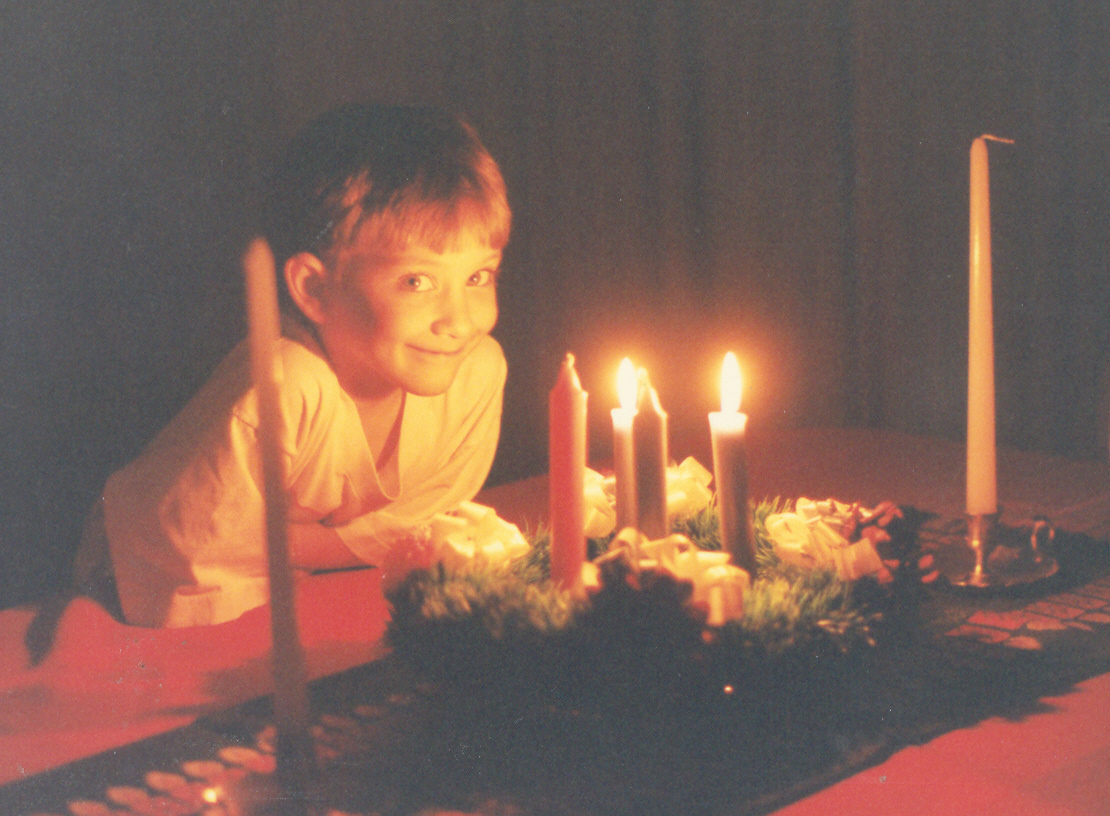Merry Christmas Eve and Happy Fourth Sunday of Advent! Here’s an early Christmas present: we’ve just launched Don’t Fear Death! with Tom Krell For Individuals and For Groups. The reason that this season is joyful is largely related to the reason we don’t need to fear death: the birth and life of Jesus Christ offers us hope in the face of darkness. Through the words and actions of Jesus, God promises us more than our lives here on earth. He promises that death is not the end, but a gateway into a larger world. This promise can be hard to remember, however, particularly in today’s culture, which resists death as an enemy to be defeated.
The poet Dylan Thomas famously wrote,
 Do not go gentle into that good night,
Do not go gentle into that good night,
Old age should burn and rave at close of day;
Rage, rage against the dying of the light.
Western culture loves this poem, which routinely makes its way onto various “best poems” lists and is a staple of high school and college English classes. We respond to the idea of death as the enemy; as the darkness that removes the beauty and fire of human souls from the earth. The idea of fighting that enemy to the bitter end, even if we know that we will lose, just for the sake of the struggle against the darkness, moves us.
Tom Krell takes an approach to death that stands at odds with this approach to death. Tom, whose years of work in hospice care and as a priest have brought him to many deathbeds, suggests that Christians need not fight death off as an enemy. Instead, he describes death as a spiritual experience — one that we would do best to accept at the end of our lives as part of God’s plan.
As Christians, we view death as an entrance into another plane of existence rather than as an end. With God’s help, Tom suggests that we accept this process as the natural end to the lives that God has given us here and make it as simple and painless as we can for ourselves and our loved ones. If we accept the inevitability of death at the end of ours lives, the experience of dying, Tom argues, can be spiritually powerful and even beautiful. Instead of fighting, Tom recommends that we make ourselves as comfortable as possible, surround ourselves with people whom we love, make right any wrongs as we can, and reflect on the beauty that our lives have held. In this course Tom offers suggestions for dying people and their caregivers about ways to make the process of dying rich and spiritually beneficial rather than degrading and painful.
natural end to the lives that God has given us here and make it as simple and painless as we can for ourselves and our loved ones. If we accept the inevitability of death at the end of ours lives, the experience of dying, Tom argues, can be spiritually powerful and even beautiful. Instead of fighting, Tom recommends that we make ourselves as comfortable as possible, surround ourselves with people whom we love, make right any wrongs as we can, and reflect on the beauty that our lives have held. In this course Tom offers suggestions for dying people and their caregivers about ways to make the process of dying rich and spiritually beneficial rather than degrading and painful.
We hope that people facing end-of-life decisions, caregiving questions, severe illness, or who simply want to learn more about how to approach death find this class useful. For a preview of the course, please click here.
We hope that each of you has a merry Christmas and a very happy new year!

 Through the habit of liturgy — the formal, repeated order of worship bearing the same components and shape wherever and whenever it is performed — we internalize the incarnation and resurrection of Christ. Liturgy plants in us our individual faiths; yet it is a public and communal act as we stand together in worship as brothers and sisters in Christ.
Through the habit of liturgy — the formal, repeated order of worship bearing the same components and shape wherever and whenever it is performed — we internalize the incarnation and resurrection of Christ. Liturgy plants in us our individual faiths; yet it is a public and communal act as we stand together in worship as brothers and sisters in Christ.

 Cathedral, talks about designing liturgy in such a way that it conveys specific messages during particular seasons and addresses the heart, mind, and body for the purpose of elevating the spirit. She discusses ways to choose prayers, music, and decor, the incorporation of the church seasons, and conveying the thematic importance of certain ideas at certain times through liturgy. The mission of liturgy, she emphasizes, is always proclaiming of the incarnation and resurrection of Christ in the world.
Cathedral, talks about designing liturgy in such a way that it conveys specific messages during particular seasons and addresses the heart, mind, and body for the purpose of elevating the spirit. She discusses ways to choose prayers, music, and decor, the incorporation of the church seasons, and conveying the thematic importance of certain ideas at certain times through liturgy. The mission of liturgy, she emphasizes, is always proclaiming of the incarnation and resurrection of Christ in the world. On January 21, ChurchNext will launch Luke the Liberator, a 5-course curriculum focusing on the Gospel of Luke that will be free to anyone who wants to take it during the entire Lenten season.
On January 21, ChurchNext will launch Luke the Liberator, a 5-course curriculum focusing on the Gospel of Luke that will be free to anyone who wants to take it during the entire Lenten season. Introduction to Luke: John Lewis, a teacher and scholar of the gospels from
Introduction to Luke: John Lewis, a teacher and scholar of the gospels from  journalist who has written extensively on women in the Bible, discusses the Gospel of Luke in the context of women. She examines women’s voices in Luke, Luke’s message about women in its historical context, and Luke’s Gospel as it applies to gender and social justice in the 21st century.
journalist who has written extensively on women in the Bible, discusses the Gospel of Luke in the context of women. She examines women’s voices in Luke, Luke’s message about women in its historical context, and Luke’s Gospel as it applies to gender and social justice in the 21st century. Liberation from Wealth: The Rev. Ron Spann, a longtime social justice advocate, examines issues related to wealth in Luke’s Gospel. How does wealth enslave us? How does Christ free us from that enslavement? Ron addresses these questions and others in this class.
Liberation from Wealth: The Rev. Ron Spann, a longtime social justice advocate, examines issues related to wealth in Luke’s Gospel. How does wealth enslave us? How does Christ free us from that enslavement? Ron addresses these questions and others in this class.
 Liberated to Preach: The Rev. Jay Sidebotham, founder of
Liberated to Preach: The Rev. Jay Sidebotham, founder of  We appear to be kind of obsessed with Advent here at ChurchNext. We’ve created four courses about it so far (and someone had a good idea for another one the other day). That’s more courses than we’ve created for any other season of the church year.
We appear to be kind of obsessed with Advent here at ChurchNext. We’ve created four courses about it so far (and someone had a good idea for another one the other day). That’s more courses than we’ve created for any other season of the church year.